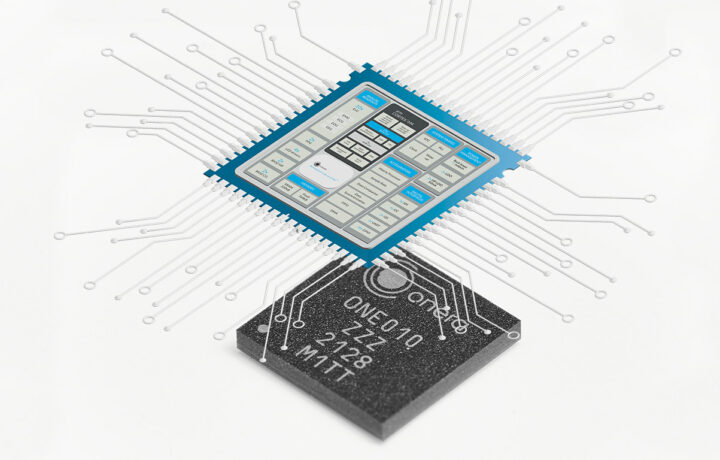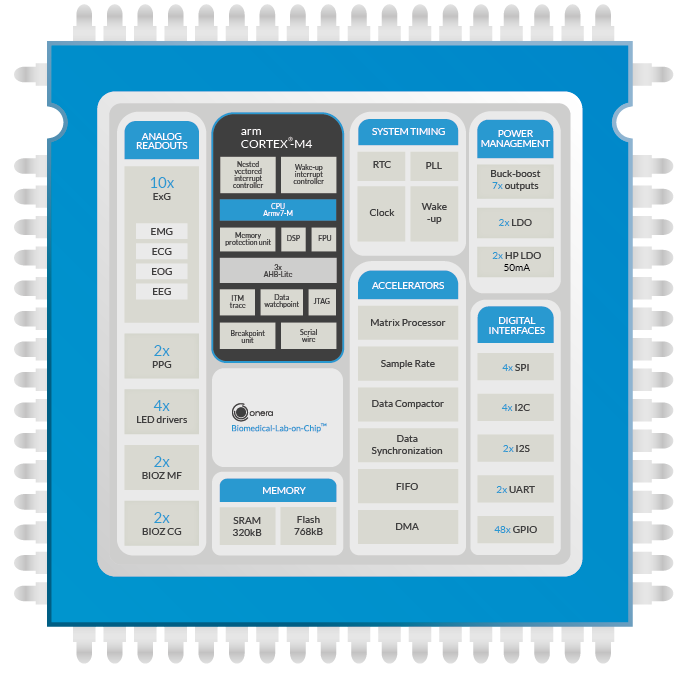Onera Health, a Dutch-American MedTech company has just introduced the Onera Biomedical-Lab-on-Chip, an ultra-low-power biosignal sensor hub for wearable health, following their earlier work on sleep diagnostic solutions.
The Arm Cortex-M4F based Onera ONE010 chip embeds a multi-channel sensor readout system with integrated data processing, power management, and interfacing features. It features biomedical inputs with 10 readouts for ExG, covering EEG, ECG, EMG, and EOG, 2 bioimpedance readouts, and 2 readouts for photoplethysmography, as well as digital filters and accelerators to process the data from the sensors.
The microcontroller is also equipped with several standard wired interfaces such as UART, SPI, I2C, and I2S, operates from a single power source between 0.8V and 3.6V, and the company says a large amount of SRAM and embedded FLASH is available.
I’ve managed to obtain a more readable block diagram and that means 320KB of SRAM and 768KB of flash. We can also see the accelerators include a matrix processor, a sampling block, a data compactor, a data synchronization engine, FIFO and DMA engines.
Onera Biomedical-Lab-on-Chip will be found in wearable health applications and devices in the medical, wellness, and fitness space. That’s about all the information we have at this time, and more details may surface on the company’s website in the future. Onera Health will also showcase its solutions at CES 2022 on January 5-8 in Las Vegas, booth 8570 in the LVCC – North Hall.
Thanks to TLS for the tip.

Jean-Luc started CNX Software in 2010 as a part-time endeavor, before quitting his job as a software engineering manager, and starting to write daily news, and reviews full time later in 2011.
Support CNX Software! Donate via cryptocurrencies, become a Patron on Patreon, or purchase goods on Amazon or Aliexpress






